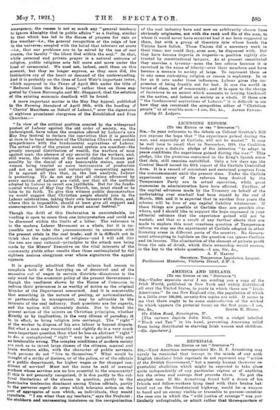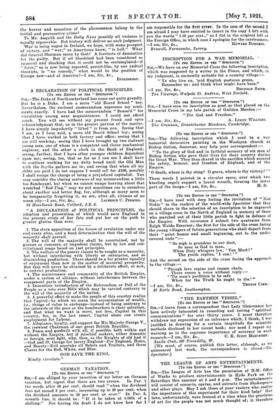REPRISALS.
[To THE EDITOR OF THE " SPECTATOR."] Sin, —Your American correspondent Mr. H. F. Armstrong ma) surely be reminded that (except in the minds of our anti English idealists) Irish reprisals do not represent any " action of the British Government," but a merely human (however re- grettable) ebullition which might be expected to take place quite independently of any particular regime or of anything, but the crime and outrage that provoke them. To put the simplest ease. If Mr. Armstrong found half a dozen of his friends and fellow-workers lying dead with their brains bat- tered out on the blood-stained highway, would he—a weapon to hand and an enemy visible or traceable to pursue—consider the case one in which the "wild justice of revenge" was par- ticularly unforgivable, or admit rather that throe-quarters of the horror and sensation of the phenomenon belong to the initial and provocative crime?
To Mr. Asquith and the Daily News possibly all violence is equally reprovable. But history will deliver no such judgment.
War is being waged in Ireland, we hope, with some prospect of victory, and " war," as Americans know, " is hell." What did General Sherman mean by that? A foretaste of damnation for the guilty. But if all bloodshed had been considered so immoral and shocking that it could not be contemplated—if " force," as is now being repeated, parrot-like, by our radical theorists, is "no remedy," what would be the position of Europe now—and of America?—I am, Sir, &c., ENGLISHMAN.



































 Previous page
Previous page